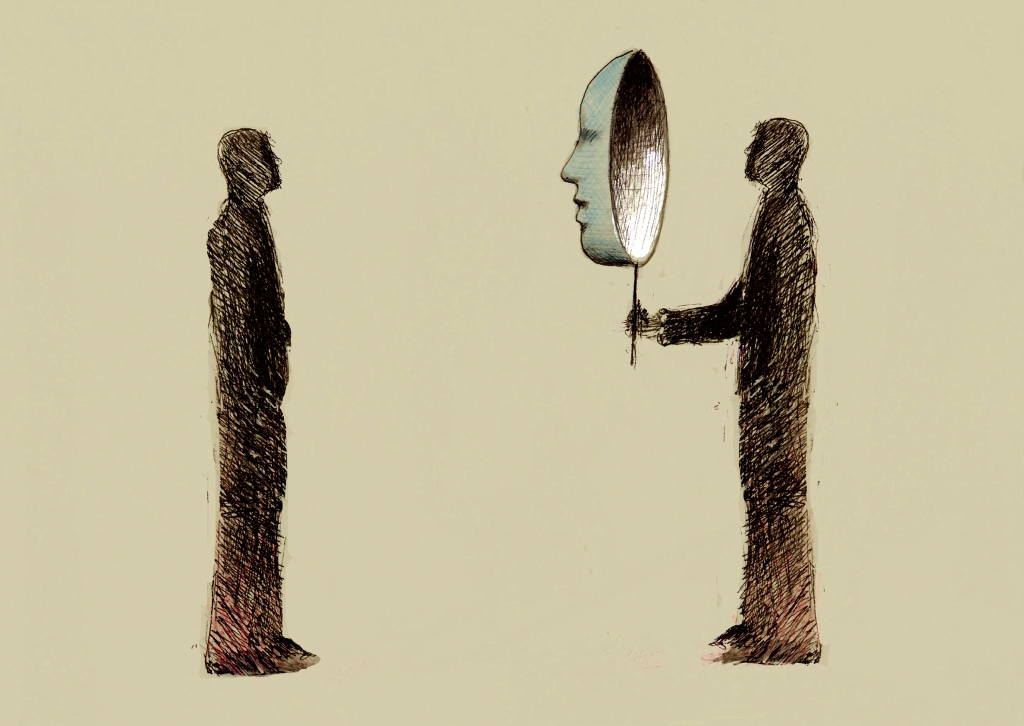
This is Holliday’s presentation at the 2nd International Symposium on Language Learning and Global Competence (2019).
Holliday says:
Essentialism is to do with ‘Us-Them’ discourse. ‘They’ are essentially different to ‘Us’ because of their culture…… There’s no way we can be the same. There’s something absolutely separate about us and them. …….Culture then becomes a euphemism for race. It’s essentially racist to imagine a group here and a group there who are essentially different to each other. That is the root of racism…….. Any group who is put over there and defined as being different to you, that is the basis of racism.
Holliday attributes this racism to everybody – even he himself in unguarded moments. At minute 18 in his talk he says:
Grand narratives define us and them by fixity and division. We are different to those people, we have to be in order to survive. .. You brand your nation as being different to those people, in a superior or inferior way.
Holliday gives the example of a Chinese student who told him he’d turned down a fantastic job in Mexico “Because Mexico is not as good as Britain”. Holliday continues:
He had a hierarchy in his head. I challenge everybody in this room …. We all position ourselves …There’s no such thing as talking about culture in a neutral way; we just cannot. Everybody is positioning themselves in a hierarchy.
Holliday says:
I remember a long time ago I was in Istanbul interviewing colleagues. We were sitting right on the Bosphorus. And everything that was East was inferior, and everything that was West was superior. This came out, very very clear; very very clear. Even inside Turkey. Yuh.
It’s worth wathching Holliday as he says all this: he’s bonkers.

Discussion
Holliday tells us a story. How does he know all this stuff about what people are thinking?
In particular, what evidence is there that Holliday’s companions made the “essentialist statement” that “‘They’ are essentially different to ‘Us’”? Holliday gives us none, not a shred. We just have to accept that he has somehow correctly read their minds.
Lets suppose we ask a group of scientists, born and raised in France, who all adopt a realist epistemology and carry out quantitative research, to watch a documentary about life in Beijing where the locals are shown working and playing and doing the everyday things they do. Regardless of what they might say, Holliday will insist that the scientists’ “positivist ideology” will make them all think, consciously or not:
“Those people are essentially different to us. There’s no way we can be the same. There’s something absolutely separate about us and them”.
Their view of the Beijing people as “essentially different” means that they’re all racists. In answer to any outraged denials of this charge by the accused scientists, Holliday will say they’re blind to their racism. They can’t help themselves: they can’t escape their cultural influences and the consequences of their “positivist ideology”.
So here’s the question: Do we accept Holliday’s argument that the equation: positivism = essentialism necessarily means that our group of French scientists are racists, or do we call out Holliday as a preposterous bullshitter? Do we allow ourselves to be persuaded for a second by Holliday’s obvious nonsense, or do we push back against it?
To take some more examples,
- How does Holliday know when people are imagining “a group here and a group there who are essentially different to each other”? Does he have some special antenna, like a built-in lie detector, or is it a necessary consequences of talking about “large cultures”?
- How does he know when people put a group “over there” and define them as being different to us? Where is “over there”?
- How does he know that his Mexican student had a hierarchy in his head?
- How can he report with such certainty that when he was sitting there with his Turkish colleagues, all of them without exception thought, precisely, that everything to the East of Istanbul was inferior, and everything to the West was superior?
Holliday calls those who adopt a realist epistemology and who value logic and empirical evidence (physicists, chemists, psycholinguists, … all those who call themselves scientists) “positivists”. He equates a “positivist ideology” with racism. Postivists are the bad people. The good people are relativists like him; those who rely on the interpretation of subjective experiences and who reject the scientific, “positivist paradigm”.
Holliday claims that
“the technicalized commodification of methods are implicit in the neoliberal agenda of the university sector”, and that, more generally, “grand narratives of nation, language, and culture are ideologically constructed. They come from politics”.
What does that mean? What ideology constructs the grand naratives” What politics is he talking about? Just for example, is Chomsky’s “grand narrative” that all languages share a deep grammar ideologically motivated? If so, what’s the ideology? Chomsky is a delared anarchist. Is his theory of Universal Grammar an unintended contradiction? Part of the ideology of a neoliberal, capitalist ruling class?
What’s so shocking is how unacademic Holliday is – he seems to think that making things so by definition and then adding a few personal, meaningful anecdotes suffices to drive home necessary truths. Holliday stands on a soap box and preaches. He’s a deluded crusader, out to save us all, and his postmodern armour protects him from silly demands to explain more carefully in plain English what he’s talking about, or to provide reliable evidence for his assertions.
Native speakerism
Holliday’s irrationalism is demonstrated most clearly when he gets on his “Native Speakerism” hobby horse. All talk of native speakers, Holliday insists, is “the voice of the ideology of native speakerism”, where “culturally superior native speakers teach the non-native-speaker-cultural-others how to think and be civilised”. Holliday refuses to review any journal article using the acronyms NS and NNS.
Holliday’s commitment to a qualitative, ethnographic methodology and to a constructivist epistemology happily fuses with his commitment to stamping out racism, any mention of native speakers, and lots more injustices besides. Holliday limits the scope of his descriptions to a single, preferred interpretation which is not just partial, but also ideologically blinkered. To borrow from Widdowson, what Holliday offers is interpretation, not analysis. And very bad interpretation at that.
Pingback: The Social Turn | What do you think you're doing?